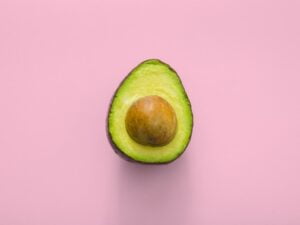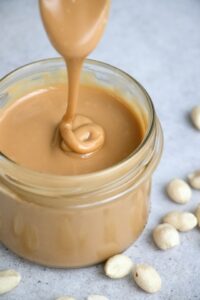YUMMY VALLEY’S SALE 🎁
Upto 20% Off
Get 1 Free Millet Bite Pack With Every Order
- Your cart is empty
- Continue Shopping
6 Baby weight gain foods you must try now
- Published on:
- Last update: 09 October 2023
- This post has just been created. Stay tuned for updates and additional content.

Weight-gaining foods for babies
Your child is too cute to imagine being cuter – but you might wonder if they’re growing as fast as they should. If you have that doubt, then try baby weight gain foods.
Table of Contents
Toggle
Those of you concerned that your baby is too tiny should note that, in the first few days of life, your baby will lose 3–7% and even as much as 10% of his birth weight, which he will regain by the end of the second week.
Infants should gain about 0.45 kilograms per month until they reach the 6-month mark. Around the end of their first year, infants should weigh triple their birth weight.
The numbers above are averages, and a healthy baby may gain different amounts of weight depending on their birth weight, rate of growth, and other factors.
At any time during your baby’s well-baby checkup, you can discuss weight gain with your paediatrician.
As long as you and your healthcare practitioner have ruled out any medical factors preventing your child from gaining weight, such as heart or digestive issues, you should consider feeding them calorie-dense whole foods. Whole foods have more calories than processed foods.
A few baby weight gain foods are listed below. Below, you’ll find them organized by age group.
Under six months: Baby weight gain foods
Babies under six months who are gaining less weight than usual can cause concern. The only thing you can control right now is how often you feed them and whether they get enough calories because all or most of their calories come from breastmilk, formula, or both.
1. Adequate amounts of breastmilk and infant formula
Newborns breastfed for the first four months will usually feed every 2–3 hours, so plan on 8–12 feedings per day.
Additionally, your doctor may ask about any latching problems and explore any underlying medical conditions that may adversely affect your baby’s ability to absorb nutrients and metabolism.
Choosing the right formula or whether to supplement breastfeeding with formula is best discussed with your paediatrician.
A doctor can help you make informed decisions about these complicated choices based on many personal factors. It might be worthwhile to consult a lactation consultant as well.
6–9 months: Baby weight gain Foods
Around the 6-month mark, many babies start showing signs that they will start eating solid foods.
Find out when to begin baby weight gain food or complementary solid foods with your baby by speaking with your healthcare professional.
2. Avocado

Whether you choose to introduce solid foods through baby-led weaning, the traditional puréed food approach, or a combination of both, avocados are a great introduction to solid foods.
In addition, avocado has a relatively mild taste and healthy fat content, so it’s an excellent food for weight gain for babies. Avocados are good baby weight gain food.
Make it mashed up or make thick spears out of it. As well as adding it to other foods, such as rice cereal or another fruit, you can also add it to other drinks.
Introducing new foods one at a time is a good idea. You will have a better idea of what could have caused an allergic reaction if your child has one.
3. Oatmeal
Adding oatmeal cereal to your baby’s diet is another great way to include nutritious foods in their diets.
Simply blend cooked oats in water; add water as necessary to achieve a soupy texture. You can replace the formula or breastmilk with milk to make it heartier. Depending on how comfortable your baby is, increase the thickness over time.
As a source of soluble fibre, oatmeal contains beta-glucan, one of the many forms of fibre found in oatmeal. It may encourage the growth of beneficial gut bacteria in your baby’s gut, which prevents the growth of harmful bacteria.
Aside from its neutral taste, oatmeal is a hearty, healthy food that is easy to combine with other dishes. Adding puréed fruit and cinnamon can enhance the flavour.
Avoid honey
Babies under one year old should never be given honey since it puts them at risk of botulism and could cause choking.
4. Peanut butter

Peanut butter is packed with protein and fats, which can contribute to your baby’s weight gain.
It is important to remember that peanuts belong to the eight allergens that can cause severe allergic reactions. Try peanut butter as a baby weight gain food.
It is now recommended to introduce foods that commonly cause allergies to infants even as young as six months old. Peanuts are part of this recommendation. Researchers suggest that this method may prevent infants from becoming allergic to certain foods.
.
Allergenic foods should be introduced methodically, one at a time, and new, higher-risk foods should be introduced at least a week apart.
Ensure that your baby eats these foods regularly. Watch for allergy symptoms such as hives, redness around the mouth, and wheezing. If the baby experiences any of these symptoms, contact your doctor.
Baby peanut butter should never be eaten straight from the jar because it could cause choking.
Ideally, you should mix raw peanut butter, or any nut butter, with either warm water, apple sauce, breast milk or formula, or – if you have already tried dairy – yoghurt.
Oatmeal can be enriched by adding it to it.
Before introducing nut butter or other higher-risk foods to your child, speak with a healthcare professional if they have allergies or eczema.
The doctor may recommend that you wait until the child is of an appropriate age, supervise this in the office, or recommend testing first for allergies.
5. Eggs
A powerhouse food for babies and adults alike, eggs are another nutritious food. The combination of fats and proteins makes eggs incredibly filling. It’s a versatile dish that’s easy to prepare and tends to be gentle on the stomach.
Introduce this food gradually and methodically since it is another typical allergenic food. If the food causes an allergic reaction, you will want to stop introducing it immediately. Whenever your baby appears to be wheezing or having difficulty breathing, seek immediate emergency care.
Eggs should eventually become a staple in your baby’s diet, so you may want to try scrambling them and sprinkling cheese and vegetables for extra nutrients.
You can also use eggs in other dishes. Serve them with strips cut from them as quick rice patties, for example, by adding cheese and veggies to the rice.
9–12 months: Baby weight gain food
The 9-month mark is not an absolute requirement for introducing fish, but it is much easier for babies to handle the texture at this point than at an earlier age.
6. Fish
Healthy fats and protein from fish are essential to your child’s development. You should seek high-quality fish like salmon, herring, and trout that contain little to no mercury.
In addition to brain-nourishing DHA, these fish and other fish contain omega-3 fatty acids that are essential for proper brain development during childhood.
If you want to add nutrients to your fish, serve it with a lemon full-fat yoghurt dip or marinara sauce.
.
Should you be worried about your child’s weight?
When your child appears to be progressing according to developmental milestones and is energetic, they are most likely doing well.
Your baby’s weight is probably fine unless a healthcare professional has identified a problem.
It would be best if you remembered that premature babies and those with special health needs might not track the same as those with average growth.
Nevertheless, parental instinct does exist. Be sure to speak up to your child’s healthcare professional if you have any concerns. Please take a few minutes to write down everything that troubles you and as much detail as you can.
Keeping a food diary could include recording times, dates and types of food your child has eaten. Make notes on baby weight gain foods.
It is essential to speak with a healthcare professional, such as a paediatrician, if your baby seems lazy, does not feed, or is not meeting developmental milestones.
You may also be referred to a lactation consultant, occupational therapist, or dietitian in addition to a medical evaluation.
The bottom line
The nutrition your little one receives in their early years can have a lifelong impact. Parents are concerned about ensuring their children are eating enough and growing correctly.
Consult a healthcare professional if your child is not developing as they should or suddenly aren’t feeding well. Remember that babies’ food consumption decreases typically at around 12 months.
You can support your baby’s growth with various wholesome foods – like eggs, avocados, and peanut butter.
Make sure you provide your young infants with enough opportunities to breastfeed and take enough formula based on their hunger signals.
That said, if your child seems alert, meets milestones for their age, and seems to have the energy to play, they are probably getting enough nutrients.
All the nutrients for babies in one place: Yummy Valley.

